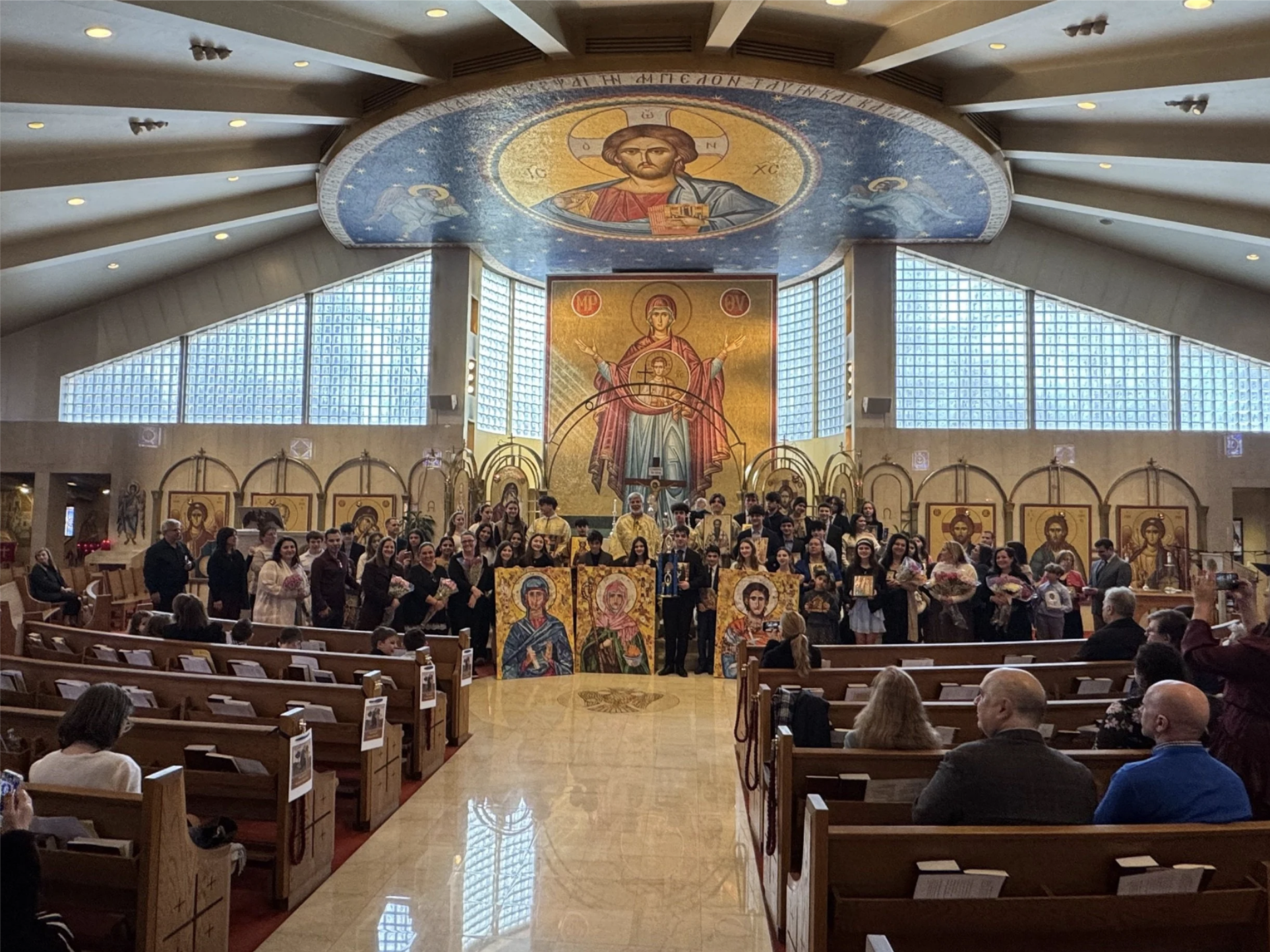
Our Parish
Welcome to Saint Nicholas Greek Orthodox Church
Thank you for visiting our website. On behalf of our parish priest. Rev. Basil Gikas we hope you take a moment to watch a brief welcome message and learn more about what the Orthodox faith has to offer you in your walk of faith.
I Would Like To Learn More
Parish Introduction
7 Things You Should Know Before Your First Visit to an Orthodox Church
-
There are two separate services that occur every Sunday: the Orthros or Matins and the Divine Liturgy.
Orthros is a service of preparation for the coming of the Kingdom of Christ. Orthros begins every Sunday at 9 a.m.; you can view the live stream on Facebook or YouTube on the church website. The Divine Liturgy begins at 10 a.m. (In the summer, worship services begin 30 minutes earlier). Every Sunday we celebrate the good news of the Resurrection of Christ. We may also have an Artoclasia- Blessing of the Loaves service, and/or a memorial service to commemorate the memory of people that have fallen asleep in the Lord and occasionally a mother/infant churching when a 40-day old infant with the mother enter into the Church to be blessed.
People may arrive at any point from the beginning of Matins (Orthros) through the early part of the Divine Liturgy. However, during certain points in worship such as the readings from Holy Scripture & the proclamation of the Gospel, no movement inside the Church proper (Nave) is permitted. Our friendly ushers will guide you to your seat at the proper time if you arrive late.
-
In the Orthodox tradition, when we pray, we are encouraged to be standing. Prayer is active divine dialogue. Prayer is not a passive past time for spectators! Because worship (latreia) is an offering to God, we are to be fully present and attentive. Sitting is a casual posture. If you are in the presence of an important figure such as our Patriarch Bartholomew of Constantinople & New Rome, let alone Jesus Christ, the King of Kings, you would certainly be standing! We believe that when we are in the presence of God we should all stand and be attentive. If you need to sit at any point you may certainly do so, we have pews for this reason.
People do sit when we read the Epistle of the day and they stand when the Gospel is proclaimed. The faithful are seated for the sermon and then stand for most of the rest of worship. The liturgy climaxes when Holy Communion (the Eucharist) is distributed only to those Orthodox Christian faithful who have been baptized/chrismated into the faith and are in good canonical standing. To learn more contact Fr. Bill at 201 652 4774 ext.12
-
As Orthodox Christians, we typically sign ourselves with the sign of the Cross whenever the Trinity is invoked, whenever we venerate or kiss an object out of respect, and all throughout the service. The sign of the Cross is always done with the right hand by joining thumb, pointer, and middle fingers together to make one point. The ring and pinky fingers are tucked into the palm. We then go over our body beginning with the forehead, then down to our navel, up to our right shoulder and across our chest to the left shoulder.
-
When we enter into the church, we place our donation or stewardship offering in the tray, light a candle or two and kiss the icons. You may also notice that some people kiss the cross, the chalice, relics, and other things. We usually greet each other with the kiss of peace.
-
The priest is the head of the parish and he undertakes the role of spiritual father as leader of the community. People kiss his right hand. He offers the Holy Sacraments of Communion, Baptism, Chrismation, Matrimony, etc. to the faithful. That role is an historic one which entails continuing the earthly ministry that St. Paul and Christ’s apostles brought to the people.
We refer to our priests as “father”, out of respect to them, because they hear our confessions, and they are servant leaders of their flock of faithful. St. Paul referred to himself as father of his flock (1st Corinthians 4:14-15). Thus the faithful refer to the pastor in the same way to honor the office of the priesthood.
The Orthodox Church permits married men to be ordained as clergy. However, married clergy are not permitted to become Hierarchs (Bishops). Hierarchs are selected and elevated from the celibate (unmarried) clergy. If the priest is married, his wife has the title: “Presbytera” (Greek), which means “elder” or “priest’s wife.” Most married clergy have families/children.
-
Here at Saint Nicholas, the clergy, the chanters and the choir lead the people in congregational singing. Everyone is encouraged to raise their voice and praise God! Traditionally, the hymns of Matins (Orthros) are chanted in the Byzantine style and the Divine Liturgy is sung by the clergy, choir and congregation. We primarily use modern English accompanied by ancient liturgical Greek as well. Sermons are spoken in English.
-
Just ask! If you have questions, please remain in the church after our services to meet the clergy and the other stewards (members) of our Parish Family. You should also join us at our friendly fellowship hour every Sunday after worship! We will introduce you to any ministries/organizations that you are interested in. Please fill out a blue Welcome Card when you arrive and give it to an usher or council member. Someone will contact you soon! We encourage inquiries and inquirers!